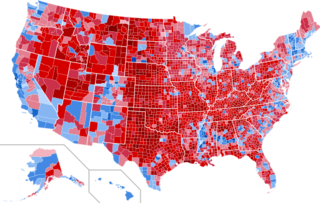Altruism
Impact of the Economy on Swing Voters
Ahead of the midterm elections, many voters feel they can’t afford altruism.
Posted October 25, 2022 Reviewed by Michelle Quirk
Key points
- The difference between liberals and conservatives can be understood through the psychology of altruism.
- During an economic crisis, altruism is a political luxury that people often feel they can't afford.
- These factors predict a "red wave" in the coming 2022 midterm elections.

There’s a saying that goes, “if you’re not a liberal when you’re young, then you have no heart, but if you’re not a conservative when you’re old, then you have no brain.”
As we head into the November midterms, it’s worth unpacking what this phrase means by examining differences between liberals and conservatives. Beyond hot-button issues like abortion, gun control, and climate change, we could say in more general terms that, on the one hand, liberals tend to support bigger government and “social programs” that provide services for those in need and those who have been traditionally marginalized. They’re often focused on change in the name of social justice and the principle of leveling the playing field in pursuit of equity as opposed to only equality where the "head start" of privilege is ignored. Conservatives, on the other hand, support smaller government and free-market economics and, as the word “conservative” suggests, tend to vote for policies that protect one’s personal interests—including one’s property, assets, values, and privilege—while preserving the status quo in the name of tradition and morality.
Of course, this way of characterizing liberals and conservatives is, at best, a stereotype of broad brush strokes. It doesn’t mean that liberals don’t have brains or that conservatives don’t have hearts any more than it means that conservatives are only made up of rich white people while liberals are made up of poor people of color.
Altruism of Middle-Class Swing Voters
But thinking about political differences in this way does allow us to interpret the phrase about liberals’ hearts and conservatives’ brains in a potentially useful way though the psychology of altruism among middle-class swing voters. In other words, since voting often amounts to supporting policies that most benefit one’s self-interests, the rich will often predictably vote conservative while the poor will often vote liberal.
But middle-class swing voters are often split. Sometimes, when they have something to protect, supporting conservative policies that help them hold on to what's theirs becomes a "no-brainer." And, even when their assets are modest, policies that promise the chance to "make it big" and achieve the prosperity of the American dream through hard work hold much appeal. In contrast, when middle-class swing voters support liberal policies that benefit the disenfranchised even though they may not be particularly disenfranchised, this amounts to support of the twin ideals of social justice and altruism—“heart.” Being “awake” to social inequity and wanting to do something about it is what “wokeness” is all about.
That said, the altruism of middle-class swing voters is a kind of luxury whose cost ebbs and flows with the economic tides. As political strategist James Carville warned President Bill Clinton’s campaign in 1992, “it’s the economy stupid.” And in 2022, it’s still the economy…which doesn’t bode particularly well for liberal candidates come November. With inflation rising and the economy tanking as we head into a recession, and conservatives successfully weaponizing terms like “socialism” and “wokeism,” the altruism and idealism of liberal voting may very well go out the window as middle-class voters increasingly fret about their bottom line.
When we fly on an airplane and sit through the demonstration on safety in the event of an emergency, we’re always told to put an oxygen mask on ourselves before we try to help others. It’s no different when we talk about voting out of altruism. With the economic squeeze we’re all feeling, many feel that they can’t afford to be altruistic.
It's therefore no surprise that we’re seeing close Senate races involving some of the most unlikely—and seemingly immune to scandal—"red” candidates like Mehmet Oz or Herschel Walker in states that have traditionally voted “blue.” We’re also witnessing liberal cities like Portland and San Francisco revolt against social policies that have failed to halt crime or curb skyrocketing rates of homelessness.

The Swinging Pendulum in Elections
When an electorate isn’t happy, the pendulum of political elections in the United States has a way of swinging back and forth between liberal and conservative candidates in the name of change. As we might expect, then, supporting the political status quo is typical during times of prosperity whereas political change becomes especially likely during times of adversity. With President Biden thwarting a second term for President Trump and Democrats taking control of the House of Representatives in 2020, it’s easy to see how a struggling economy might trump issues like abortion rights and swing the pendulum back the other way, ushering in a red wave of conservative candidates in the 2022 midterms and in 2024.
For that matter, it’s not that hard to see how the wave of populism that elected the likes of President Trump could transform into support for an authoritarian regime in the name of a battle between “us and them” within a Divided States of America just as it has in other countries around the world.
If liberals want to prevent that from happening, they need to spend less time voicing their incredulity at the stubborn resilience of political campaigns like those of Oz and Walker and the extant popularity of Christian Nationalist candidates like Marjorie Taylor Greene and Lauren Boebert. Running on voting rights, gun control, abortion rights, and climate change isn't going to get Democrats elected. Neither will altruism.
Wake up, woke liberals…it’s the economy, stupid. Again.




